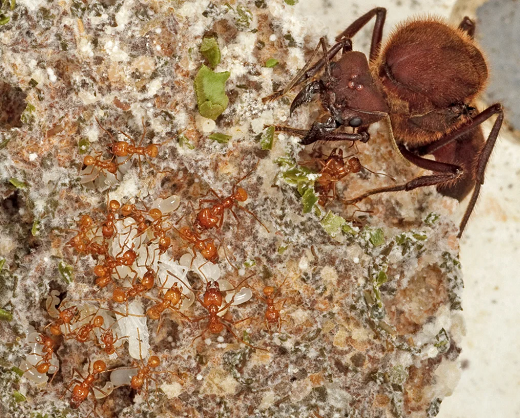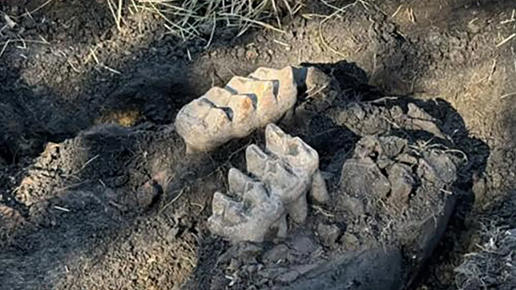You may have seen leaf-cutter ants carrying bits of plants in nature documentaries or at a science museum. These ants don't eat the leaves; instead, they use them to cultivate fungi gardens inside their nests. The fungi produce food that sustains the ants.
Researchers have recently used DNA analysis to reveal that ants have been farming fungi for 66 million years, according to a study published in the journal *Science*. This farming behavior began around the time a massive asteroid struck Earth, leading to the extinction of the dinosaurs and creating conditions that favored the growth of fungi on decaying plant matter.
Dr. Ted R. Schultz, a research entomologist at the Smithsonian, has studied these fungus-farming ants for over 35 years. By constructing complex family trees from the DNA of hundreds of ant and fungi species, Schultz and his team discovered that the ants and fungi co-evolved, resulting in specialized mutualistic relationships. Ants began farming fungi 66 million years ago after an asteroid hit Earth, according to a new study. Here the queen and workers of the leaf-cutter ant species Atta cephalotes tend to a fungus garden. Karolyn Darrow
Ants began farming fungi 66 million years ago after an asteroid hit Earth, according to a new study. Here the queen and workers of the leaf-cutter ant species Atta cephalotes tend to a fungus garden. Karolyn Darrow
The ants benefit from the fungi as a food source, while the fungi gain protection and a stable environment in the ant nests. This mutualism has persisted and evolved over millions of years, making the ants some of the world’s earliest and most successful farmers. Understanding this long-standing partnership may offer insights into more sustainable agricultural practices for humans in the future.







